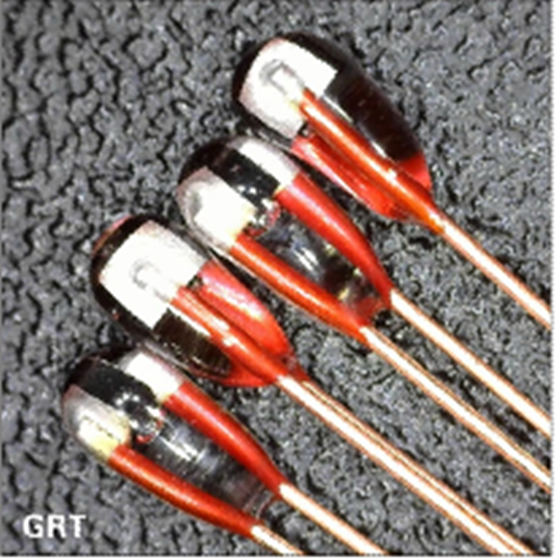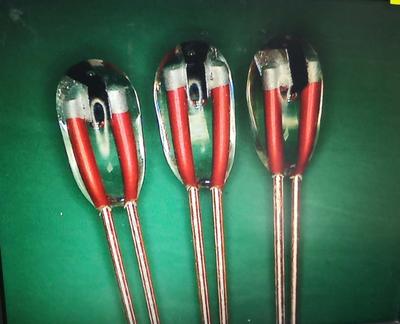In industrial settings, accurate and reliable temperature measurement is crucial for ensuring process efficiency, product quality, and safety. Among the various temperature sensing technologies available, glass NTC (Negative Temperature Coefficient) thermistors have emerged as a top choice for many applications due to their unique combination of accuracy, stability, and versatility.
What are Glass NTC Thermistors?
Glass NTC thermistors are temperature sensors that consist of a small semiconductor material encapsulated in a glass bead or rod. The semiconductor material exhibits a decrease in electrical resistance as temperature increases, allowing the thermistor to provide a measurable output that correlates to temperature changes. This negative temperature coefficient is what gives NTC thermistors their name.
Advantages of Glass NTC Thermistors
One of the key advantages of glass NTC thermistors is their high accuracy. With proper calibration, these sensors can achieve accuracies of ±0.05°C to ±1.0°C over a wide temperature range. This level of precision is essential for many industrial applications where even small temperature variations can impact product quality or process efficiency.
Glass NTC thermistors also offer excellent long-term stability and reliability. The glass encapsulation protects the sensing element from moisture and other environmental factors, minimizing drift and ensuring consistent performance over time. This is particularly important in applications where sensors may be exposed to harsh conditions or need to operate continuously for extended periods.
Another advantage of glass NTC thermistors is their wide operating temperature range. Some models can measure temperatures from -50°C to +300°C, making them suitable for a broad spectrum of industrial applications. This versatility allows manufacturers to standardize on a single sensor type, simplifying inventory management and maintenance.
Glass NTC thermistors also boast fast response times, typically in the range of a few seconds. This quick response enables real-time monitoring and control of temperature-sensitive processes, helping to optimize performance and prevent issues before they occur. The compact size of glass NTC thermistors is another benefit, as they can be easily integrated into space-constrained equipment or used for spot measurements in hard-to-reach locations.
Finally, glass NTC thermistors are often more cost-effective than other high-accuracy temperature sensors like RTDs or thermocouples. This makes them an attractive option for applications where budget is a concern, but performance cannot be compromised.
Industrial Applications of Glass NTC Thermistors
The unique properties of glass NTC thermistors make them well-suited for a wide range of industrial applications. In process control and monitoring, these sensors can be used to measure and regulate temperatures in tanks, pipes, and reactors, ensuring optimal conditions for chemical reactions or material processing.
In HVAC systems, glass NTC thermistors can provide accurate temperature feedback for efficient heating and cooling control. Automotive applications include engine temperature monitoring, cabin climate control, and battery management.
Glass NTC thermistors are also commonly used in medical equipment, such as patient monitors, incubators, and diagnostic devices, where precise temperature measurement is critical for patient safety and accurate results. In aerospace and defense, these sensors can be found in avionics, satellites, and military vehicles, where their reliability and wide temperature range are essential.
Choosing the Right Glass NTC Thermistor
When selecting a glass NTC thermistor for your application, several key factors should be considered. First, ensure that the sensor's temperature range and accuracy meet your requirements. Stability and long-term reliability are also crucial, especially in applications where frequent sensor replacement is impractical or costly.
Packaging options are another important consideration. Glass NTC thermistors can be customized with various lead configurations, connectors, and housings to suit specific application needs. Working with a reputable manufacturer like HORLE can help ensure that you get the right sensor for your application, backed by expert support and quality assurance.
Conclusion
Glass NTC thermistors offer a compelling combination of accuracy, stability, and versatility that makes them an excellent choice for industrial temperature sensing applications. From process control to automotive and medical equipment, these sensors deliver reliable performance in a compact and cost-effective package.
By understanding the advantages of glass NTC thermistors and carefully selecting the right sensor for your needs, you can optimize your temperature measurement capabilities and ensure the success of your industrial applications.
For high-quality glass NTC thermistors and expert guidance, visit www.hldxsensor.com and discover how HORLE can help you achieve your temperature sensing goals.








